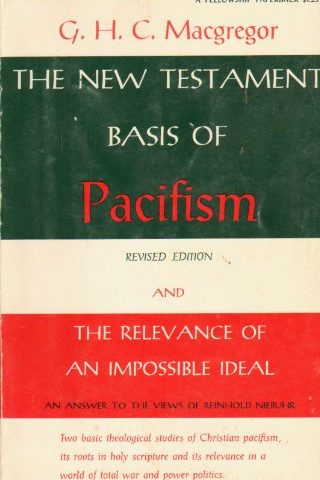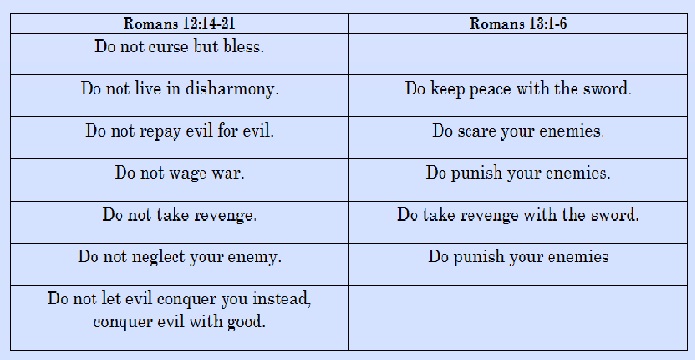by G.H.C Macgregor, 1953, p. 88-90.
“Firstly, until about the close of the third quarter of the second century [175 AD] the attitude of the Church was quite consistently pacifist. Harnack’s conclusion is that no Christian would become a soldier after Baptism at least up to the time of Marcus Aurelius, say about A.D. 170. After that time signs of compromise become increasingly evident, but the pacifist witness continues strong right up into the fourth century. Aristeides, Justin Martyr, Tatian in the second century, Tertullian, Origen, Cyprian, Hippolytus in the third, Lactantius in the fourth, all make statements which show that they regard war as organized sin and a denial of the way of Jesus. In the Canons of Hippolytus it is stated that a soldier who confesses himself a Christian convert is to be excluded from the sacrament until he has done penance for the blood which he has shed…
“It is surprising that orthodox theology is still so blind to the witness of primitive Christianity, and remains tied hand and foot by the traditional dogma of Church and State which was laboriously evolved from the beginning of the fourth century onwards. For the crucial change in the attitude of the Church to the claims of Caesar began, of course, after the conversion of the Emperor Constantine to Christianity in 312…The Church even went the length of pronouncing the primitive Christian attitude liable to punishment, and as early as 314 the Council of Arles decreed that ‘they who throw away their weapons in time of peace shall be excommunicated.’ Harnack rightly terms this decision ‘astonishing and shocking,’ and adds that by it ‘the Church completely revised her attitude to the army and war’…
“It was Athanasius, ‘the Father of orthodoxy,’ who was one of the first to set the seal of official approval upon a subservience to State claims which involves in fact a double-morality; and once again it is the question of war which provides the test: ‘Murder is not permitted,’ he writes, ‘but to kill one’s adversary in war is both lawful and praiseworthy’ (Epistle to Ammonius). Augustine, too, vigorously defends the right of the State to require the service of Christians in war.”




